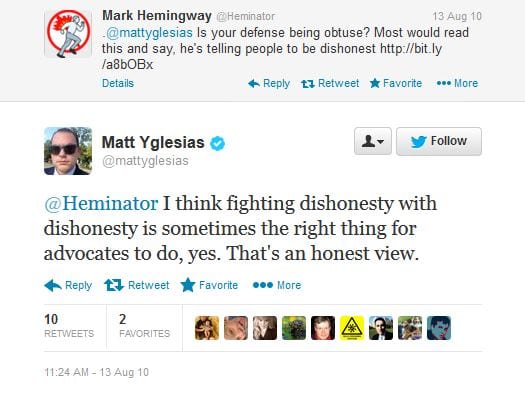Archive for 2017
September 30, 2017
WHO COULD HAVE SEEN THIS COMING? 62% of NFL fans plan to watch less football.
FAITH MOORE: New Study Blames Baby’s Colic on… Dads?
HEF DIDN’T CHANGE — LIBERALISM DID: Liberalism’s Hugh Hefner problem.
TENNESSEE CHURCH SUSPECT MAY HAVE SOUGHT CHARLESTON REVENGE:
The note could offer a glimpse into Emanuel Kidega Samson’s mindset at the time of Sunday’s shooting and a possible motive for the rampage, which left a woman dead and six other people wounded. The Associated Press has not viewed the note, but it was summarized in an investigative report circulating among law enforcement. Two officials read parts of the note to the AP.
The report said that “in sum and in no way verbatim,” the note referenced revenge or retaliation for Dylann Roof, the white supremacist who killed nine black worshippers at the South Carolina church in 2015 and has since been sentenced to death. It wasn’t clear what precisely Samson is alleged to have written about the Roof shooting, or whether his note contained other important details that might also speak to a motivation or state of mind.
Related flashback: James T. Hodgkinson, Attempted Assassin of Steve Scalise, Already Being Erased From History.
THE CRISIS OF ELITE AUTHORITY IN THE WEST:
Over the past two years the increasingly skeptical citizenry of the United States and Europe has been treated to a stream of op-eds and television appearances lamenting the looming collapse of the liberal world order, to be accompanied by a surge of illiberalism, nationalism, and fringe politics. Rarely, however, does such hand-wringing stray beyond shopworn comparisons of the “complex interdependence” of the glorious past and the parochialism and narrow-mindedness of the current era. In truth, we are not witnessing a dramatic systemic change driven by conniving external forces, but a meltdown of political authority in the West caused by the relatively straightforward indolence of its political class. Our troubles are less about liberalism’s decline or the ascendancy of left or right politics. Simply put, the citizenry in the West has been frustrated for decades with its elites’ inability to deliver workable solutions to the problems of slow growth, deindustrialization, immigration, and the overall decline of self-confidence across the West.
The legitimacy, and hence stability, of the international system rests to a degree on the ability of the leading powers to deliver at home—or, simply put, to govern. The increasing volatility of international politics is in part a byproduct of systemic dysfunction across the West at the level of domestic politics. Americans and Europeans alike are running out of patience with the governing class. In Europe, the government’s inability to control mass migration or develop effective solutions to domestic terrorism are two important drivers of the growing public discontent. In the United States the middle and working classes have been frustrated for decades with the government’s inability to remedy de-industrialization, urban decay, and declining economic opportunity.
And in both places, as the “elite” has grown demonstrably less competent and honest, it has also grown visibly more contemptuous of the people it purports to govern. That contempt is, I think, the most poisonous part of the whole equation.
SARAH HOYT ASKS: Has Michelle Obama Ever Met A Human Woman?
I’ll admit I misread the headline on the first pass, and that take was even more unflattering.
SO I GUESS SHE REALLY DID MARRY FOR LOVE, THEN: Hugh Hefner’s wife Crystal Harris, 31, ‘will inherit nothing after signing an ironclad prenup before their wedding and was never added to his will.’
WHAT COULD GO WRONG*? Christopher Caldwell: The Germans Turn Right.
The migration crisis turned Merkel’s behavior into something more than a political-science question. As Berthold Kohler of the Frankfurter Allgemeine Zeitung put it, “The fundamental trust of many middle-class Germans was shaken.”
Some Americans will recognize in the uprising against Merkel an element of their boiling fury towards Barack Obama at the end of his presidency. The AfD’s advertising campaign capitalized on that. It was the brainchild of Thor Kunkel, a Petry friend and madcap author educated in San Francisco. Kunkel enlisted Austin, Texas-based Harris Media, which has run ad campaigns for Ted Cruz, Mitch McConnell, and Likud. Kunkel’s own literary taste runs to Thomas Pynchon, and his Endstufe, or Final Stage, is a historical novel about a little-known pornographic film studio that operated under the Nazis.
In 2013 Merkel had campaigned under the slogan “Ihr kennt mich” (“You know me”), and now she was traveling around the country saying the invitation to migrants “must not be repeated,” as if someone else had done it. Some in the AfD went so far as to call her criminal. Her invitation to immigrants required ignoring the EU’s Dublin agreements on refugees. Weidel announced after the elections that she hoped to investigate Merkel for “all the breaches of the law that lady has committed.” For better or for worse, Merkel was not the person the press presented her as. She was not “steady.” She was not a mother figure. She was impulsive, unpredictable, dangerous. “The Oath-Breaker” was the headline on one of Kunkel’s online ads.
The AfD’s distrust of the press is absolute. Today, the party’s activists complain, the press does little more than collude in Merkel’s project of shaming those who disagree with her. Merkel’s justice minister, the Social Democrat Heiko Maas, worked assiduously to limit negative comments about the wave of migrants, both on newspaper comment pages and on social media. So worried was the government about his unpopularity that 250 policemen accompanied him when he went to Dresden to give a talk in July.
Trust in all institutions in Germany has plummeted—and with it trust in the “European values” that Merkel invoked two summers ago. Earlier this year, two posthumous books by the historian Rolf Peter Sieferle were published by small presses, and one—a collection of notes called Finis Germania—made it to the top of the bestseller list. Many of its entries questioned Germany’s culture of Holocaust memory. Now, Germans have broken the taboo against voting for conservative parties. But one should hesitate before assuming that Germany is traveling back down the road to fascism. The sociologist Gunnar Heinsohn points out that, even if it wished to, Germany would not have the demographic resources for it. At the point in the 20th century when Western countries began wreaking havoc, the United States, Canada, and Europe accounted worldwide for 44 percent of fighting-age men (15-29 years old). Today they account for 11 percent. Heinsohn is not saying fascism cannot arise. But he makes a convincing case that Germany will not be the place where it happens.
Read the whole thing. As Glenn has insta-quipped, “We have the worst political class in our history. The Germans, at least, can say that’s not true for them. . . .”
* I know, I know. And Caldwell does, too. But both of our headlines were too good not to use.
IN CASE YOU MISSED IT. My latest New York Observer essay: Rattled ‘Rocket Man’ Claims Right to Intercept U.S. Aircraft — Which Would Mean War.
Insulting a dictator’s “dignity” is a potentially valuable psychological weapon. And Trump uses it.
THE PITTSBURGH KNEELERS AND NATIONAL FLAG-DISSING LEAGUE (NFL): Powerline’s The Week In Pictures.
THE 173RD AIRBORNE BRIGADE DROPS IN ON ITALY: A beautiful photo with a paratrooper in silhouette.
THREE MYTHS ABOUT CATALONIA’S INDEPENDENCE MOVEMENT: Read the whole thing.
RELATED: My Creators Syndicate column this week discussed Kurdish and Catalan separatism.
THE CHAIRMAN OF THE JOINT CHIEFS OF STAFF SPEAKS: China is America’s “most significant long-term military challenge…”
NEW YORK TIMES FINDS A FLAW IN TRUMP’S TAX-REFORM PLAN: “The plan would not benefit lower-income households that do not pay federal income taxes.”
Weird how when you cut taxes, people who don’t pay taxes don’t share in the cuts.
DISPATCHES FROM THE HOUSE OF STEPHANOPOULOS: ABC World News Tonight anchor David Muir Gushes to Kimmel: People ‘Will Remember’ Your ‘Bravery’ ‘Standing Up’ For Health Care.
Flashback: George Stephanopoulos discloses $75,000 contribution to Clinton Foundation.
Just think of the media as Democratic operatives with lavaliers, and it all makes sense.
PAUL MIRENGOFF: Trump keeps winning on judicial nominations.
Not least of which is this response: “You can’t airdrop electricity from transports.”
But hey, it’s Matt Yglesias, so who knows if he was serious or not?

UPDATE (FROM GLENN):

Yeah, but supplying Stalingrad by air wasn’t one of them.
SUNLIGHT IS THE BEST DISINFECTANT: Police Union Complains That Public Got to See Them Roughing Up Utah Nurse.
PREVIEWING THE NEXT SUPREME COURT TERM. My pick: “On Thursday, the Court announced it would hear Janus v. American Federation of State, County, and Municipal Employees, revisiting the constitutionality of mandatory union “agency fees” for public-sector employees. Combined with other labor-law cases already on the Court’s docket, Janus creates the real possibility this could be a terrible, horrible, no good, very bad term for organized labor, public-sector unions in particular.”
ASHE SCHOW: Inside the Legal Labyrinth of a Campus Rape Case. Just let the police handle this stuff.
